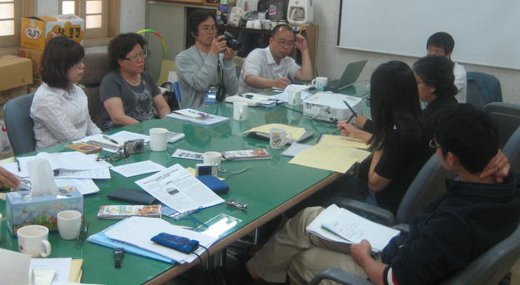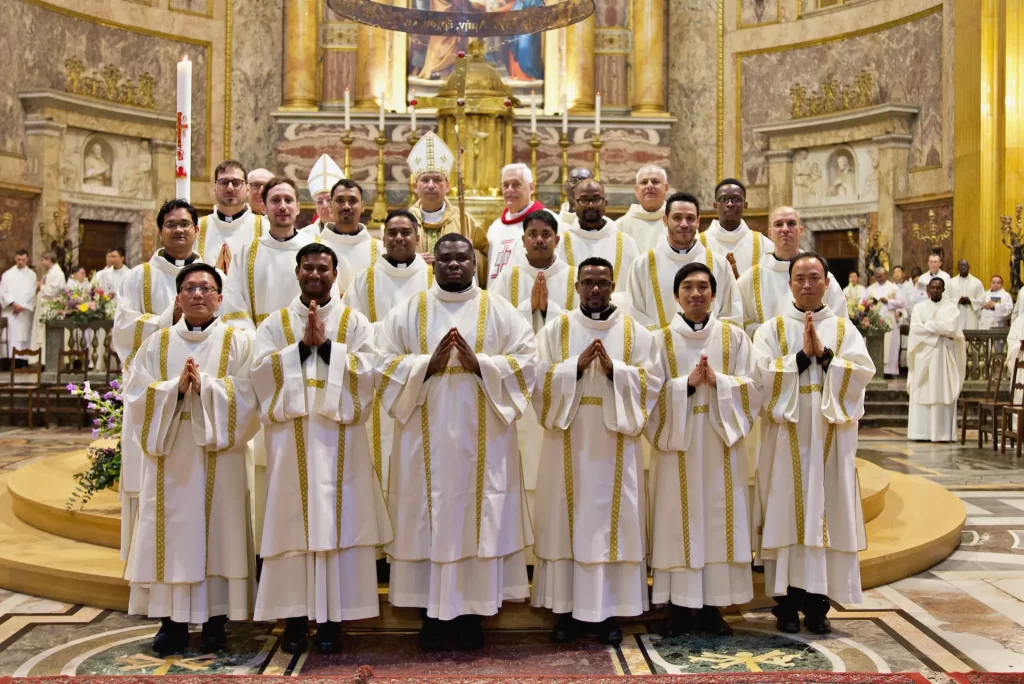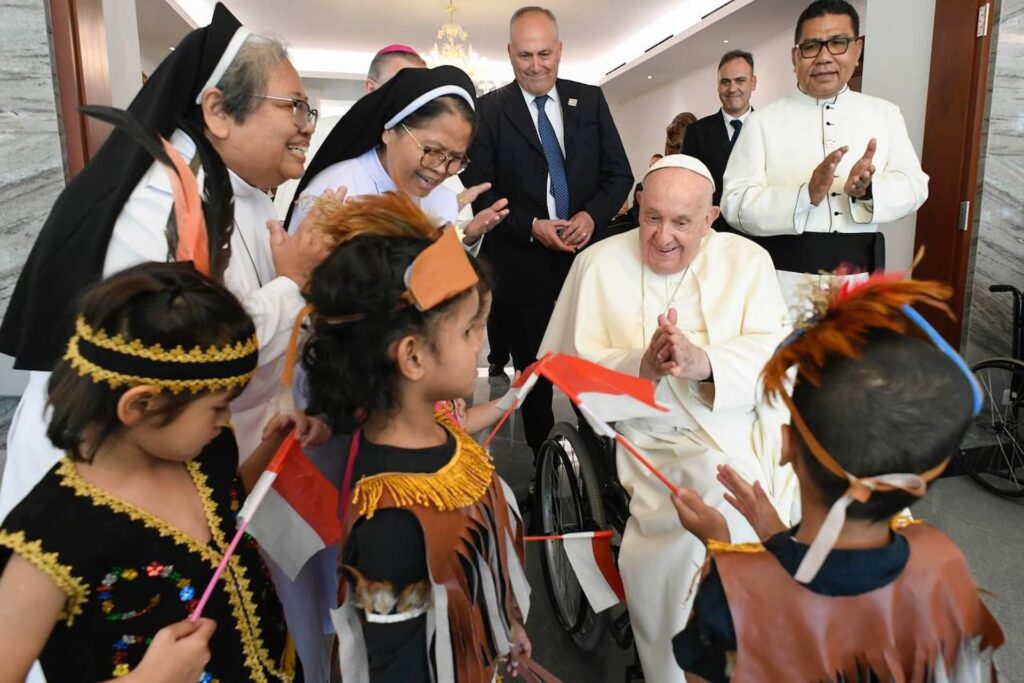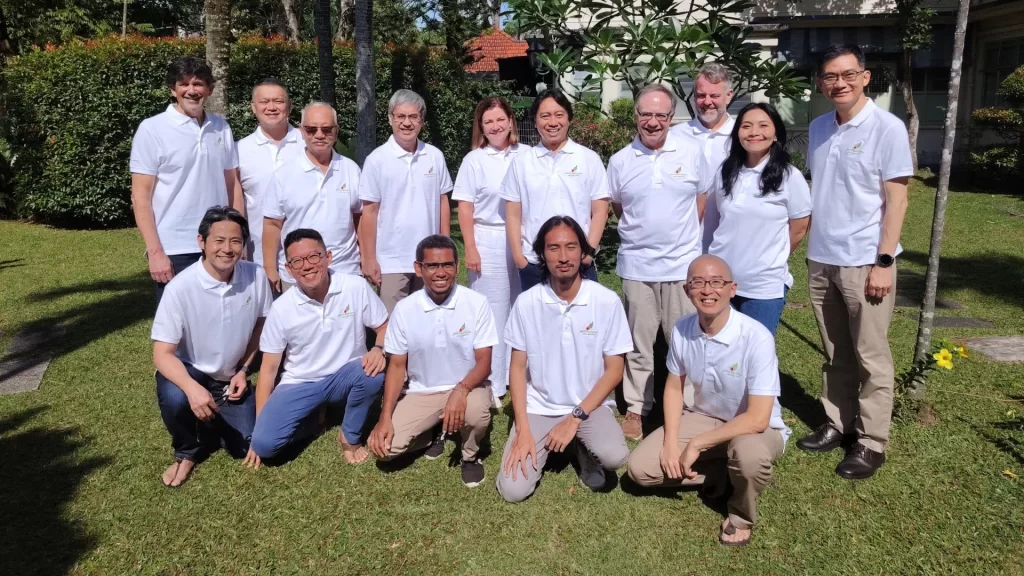Jesuit centres serving migrants came together round the table for the first time in a JCAP workshop held in Seoul from May 15 to 17, 2011. The 14 participants from Australia, the Philippines, Indonesia, Singapore, Vietnam, Japan and Korea included a representative from the Good Shepherd Sisters’ network.
During the workshop, the group heard from experts about best practices and learned from each other’s experiences. They also heard from migrants themselves. Joint action was initiated to better accompany and prepare migrants as they move across borders.
The exchange of stories, especially between sending and receiving countries, fostered a sense of solidarity and mutual understanding among participants.
Two of the participants shared their impressions and learnings after the workshop – Kim Min SJ, a scholastic working in the Jesuit migrant centre in Korea and Jennifer Lee, a social worker at the Rerum Novarum Centre in Taiwan.
Kim Min SJ: When I entered the Society of Jesus, I was fascinated by some characteristics of the Society. One of them is the sense of common identity regardless of nationalities and ethnicities. Before entering the Society, I had hardly encountered foreigners. I had only one friend from another country. Limited chances and language barriers were an obstacle for deepening friendships with foreign friends.
When I entered the Society, I was struck by the openness of Jesuit life. Brothers in formation had many opportunities that exposed them towards otherness. Scholastics in the Korean Province were supposed to go to other countries at least once a year. When I went to the Philippines as a part of an exposure programme, I was struck by a special impression. Even though we are from different countries, we share the same identity, which bound all brothers into a single unity. Nationalities and ethnicities were not important. The important thing was shared sentiments and feelings as Jesuits. It was really fascinating! It was a wonderful experience to find when I went to another country, hospitality and friendship among other people.
I had the same impression during the migration workshop. The participants came from several countries but we were bound into a single unit with the same purpose – to sympathise with the migrants’ difficulties and to be willing to serve them.
For three days we listened to the migrants and talked about how to serve them. When we spoke with each other, we respected each other’s intentions and devotion. With little tension, we could talk and share many stories. To me, this was a warm-hearted sense of solidarity. I was pleased to realise that in other places, there were people who did their best to help migrants, just like me. I wish this workshop to be beginning of collective endeavours for migrants.
When I worked in YIUTSARI-Jesuit Centre for migrant workers in Korea, all my attention was on how to provide practical help. Of course, with consultations and personal relationships, I had several chances to listen to the migrants, and the stories they shared moved and motivated my eagerness to be with them. However these chances did not often happen. I should confess that all my attention was on problem solving, rather than understanding and sympathising.
The workshop gave me a few opportunities for deepening my understanding of migrants. Of course I understood before the workshop why they became migrants but my knowledge of what motivates people to move to another country was based on a single story, which had been told by scholars and journalists. The problem with this single story was that it did not contain the voices of the migrants themselves. The exposure programme to the Hyehwa Filipino Catholic Community opened my eyes to the dangers of a single story.
For me, the most striking thing in the workshop was the report from Fr Ignatius Ismartono SJ (Indonesia), who spoke about Indonesian migrants who were physically abused by their employers. When I heard Fr. Ismartono’s presentation, I was astonished. When someone told me that this story was not uncommon, my reaction went beyond astonishment. The migrants must have more information than me but they nevertheless left their home to go to another country. How did they feel? They could not be so naïve as to expect hospitality. Now I could understand why there was a look of uneasiness in the eyes of the migrants I had met.

Ms Jennifer Lee: As a non-Catholic social worker working in Rerum Novarum Centre in Taiwan, I am grateful to JCAP for giving me the opportunity to participate in the migration workshop. To me, being invited to join the discussion means that JCAP wants to hear from the basic team workers of each centre and to facilitate an effective way of accompanying migrants in their struggles.
Rerum Novarum Centre was founded by Fr Jose Ellacuria SJ in 1971 and serves local as well as foreign workers. Working with foreign workers is harder than working with locals. The language barrier makes it difficult to communicate with foreign workers, and as social workers, we need to be familiar with the laws and circumstances of both countries.
As a social worker, I handle cases of disputes between employers and workers, helping workers get transfers to new employers as soon as possible. I also help the migrant workers plan for their return to their home countries and realise their plans. The workshop gave me the chance to meet many people working in the same field and I can approach them for advice regarding ways to serve these cases in their home countries.
Lastly, this workshop was very fruitful for me because of the joint action plan. It is a concrete step for all of us to follow. I believe that, through the enthusiasm and networking of Jesuits, our service to migrants can become better and more successful in the future.






